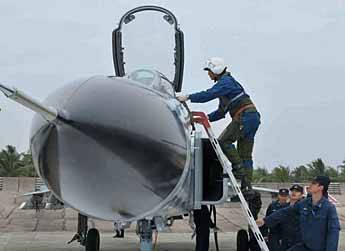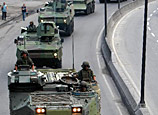
This psychological mechanism works particularly well regarding free speech and cyber attacks. Holding leverage makes it easy for the U.S. to strike a deal with China alone. Microsoft, Cisco, Yahoo, Skype, Sun Microsystems are all big players. When there isn't a deal, challenging China is just as simple, easy, and cheap. China can be made to look like whatever scapegoat the U.S. public wants; it can be a hero saving world economy or it can be an aggressor coming to gobble the U.S. up. It is one of the few nations that U.S. foreign policy advisers can still apply their public animosity skills. However, having the EU act as a middleman would complicate this game, so the U.S. rejected the idea
The only solution to the U.S.-China dispute over Internet governance in general, and cyber security in particular, is for U.S. policy-makers to realize that this is not a bilateral matter. Disputes like this are transnational in nature and involve many stakeholders. The failure at the WSIS summits has created lasting complications. The Google/U.S.-China row is only a very small fraction of the overall disputes, and this fraction is made visible by American officials because it played into their domestic needs.
After the failures of the 2003-05 WSIS negotiations, the world was increasingly led by U.S. foreign policy makers and commercial media companies. 2010 onwards has been particularly disastrous. In January 2010, Hillary Clinton delivered a well-known speech at Newseum calling for more Internet freedoms. In March 2010, Google showcased its formal withdrawal from China citing cyber attacks. In May 2010, the Pentagon launched the U.S. Cyber Command, and in May 2010, the U.S. State Department gave 1.5 million dollars to the so-called Global Internet Freedom Consortium directly affiliated with Falun Gong. In June 2010, computer malware Stuxnet -- widely believed to be created by U.S. and Israel -- was discovered in Iranian and Indonesian computers. In May 2011, President Barack Obama signed an executive order laying out cyber-war guidelines, and two weeks ago, Obama signed a new executive order to strengthen cyber defenses. Most recently, Mandiant released its report titled "APT1: Exposing One of China's Cyber Espionage Units".
Motivated by U.S. attempts to weaponize Internet, nations such as the U.K., South Korea, Germany and Iran followed suit to increase cyber war capabilities. The more energy the U.S. wastes on accusing and attacking others, the more the world community feels threatened by the U.S. monopoly on Internet governance. The more other nations challenge the U.S. in forums such as ITU, the more U.S. state authorities and businesses find it necessary to create a scapegoat. U.S. concerns ranging from creating jobs in the Pentagon to bringing jobs home through trade wars will only hurt global economic growth. It is not the way the world works. It is much ado about nothing.
Xu Peixi is a columnist with China.org.cn. For more information please visit:
http://www.china.org.cn/opinion/xupeixi.htm
Opinion articles reflect the views of their authors, not necessarily those of China.org.cn

















 The millionaire philanthropist promotes 'Clean Plate Campaign' at CPPCC session.
The millionaire philanthropist promotes 'Clean Plate Campaign' at CPPCC session.


![]()
